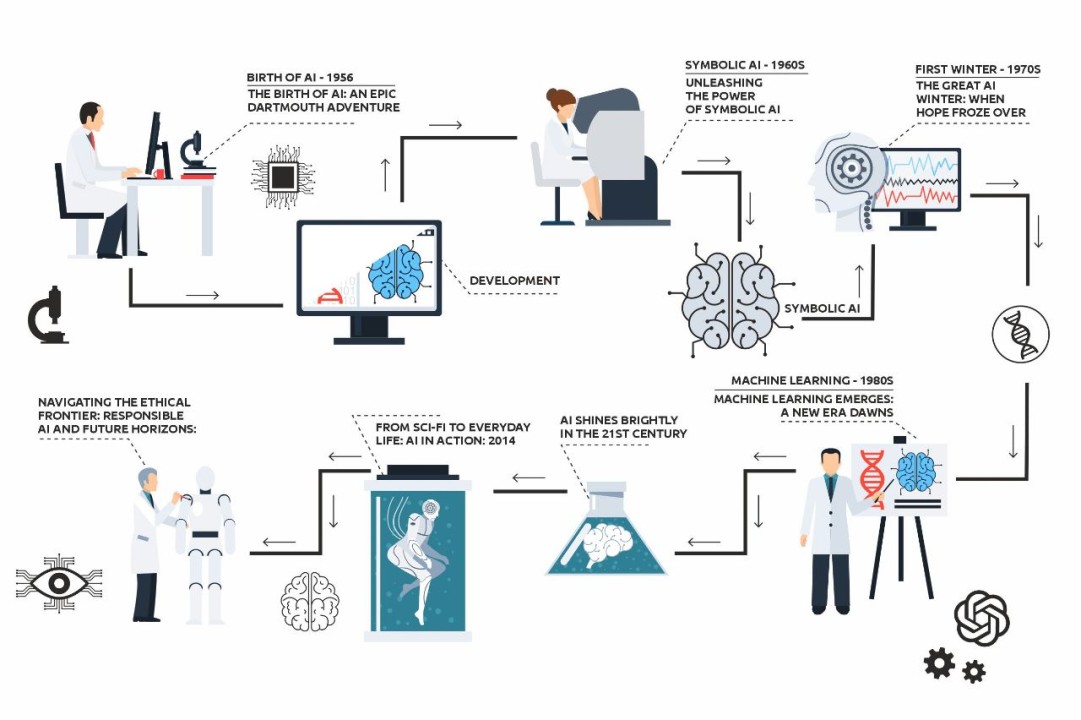The intellectual history of technology is a fascinating journey that tracks the evolution of human innovation. From the invention of the wheel to the development of artificial intelligence, the human quest for progress has been marked by groundbreaking technological advancements. This article provides a comprehensive exploration of the intellectual history of technology, delving into the pivotal moments, key thinkers, and societal impacts that have shaped our modern world.

Credit: www.amazon.com
Key Moments in the Intellectual History of Technology
The timeline of technological innovation is punctuated by pivotal moments that have redefined human existence. The invention of the printing press by Johannes Gutenberg in the 15th century revolutionized the spread of knowledge and laid the groundwork for the advancement of literacy and education. The Industrial Revolution of the 18th and 19th centuries ushered in an era of mechanization and mass production, transforming the global economy and leading to profound societal changes.
The 20th century witnessed the emergence of transformative technologies such as the automobile, the airplane, and the computer. These innovations not only revolutionized transportation and communication but also paved the way for unprecedented connectivity and globalization. The invention of the internet in the late 20th century further accelerated the spread of information and catalyzed the digital revolution, marking a pivotal point in the intellectual history of technology.
Key Thinkers and Innovators in Technological History
The intellectual history of technology is closely intertwined with the contributions of visionary thinkers and innovators who have propelled human innovation forward. From the inventive genius of Leonardo da Vinci, whose designs foreshadowed modern inventions, to the pioneering efforts of Thomas Edison, whose inventions illuminated the world, these individuals have left an indelible mark on the tapestry of technological progress.
The 20th century saw the rise of influential figures such as Alan Turing, whose work in the field of computing laid the foundation for modern-day computers, and Steve Jobs, whose visionary leadership at Apple transformed the consumer electronics industry. These trailblazers not only conceptualized groundbreaking technologies but also reshaped the way we interact with the world around us, leaving an enduring legacy in the intellectual history of technology.

Credit: www.umc.edu
Societal Impacts of Technological Advancements
The intellectual history of technology has had far-reaching implications for society, driving profound shifts in how we live, work, and interact with one another. The advent of automation and artificial intelligence has reshaped industries and labor markets, giving rise to both unprecedented efficiencies and complex socioeconomic challenges. The proliferation of digital technologies has revolutionized communication and information access, bridging geographical divides and fostering global interconnectedness.
Furthermore, advancements in medical technology have extended human lifespans and improved healthcare outcomes, fundamentally altering the landscape of public health. The environmental impact of technological progress has also come to the forefront, with debates surrounding sustainable development and the responsible use of natural resources taking center stage in global discourse. The intellectual history of technology thus stands as a testament to the intricate interplay between innovation and its societal ramifications.
Frequently Asked Questions On Intellectual History Of Technology: Unveiling The Evolutionary Power
What Are The Key Milestones In The Intellectual History Of Technology?
The key milestones in the intellectual history of technology include the invention of the wheel, the discovery of electricity, the development of the internet, and the creation of artificial intelligence.
How Has Technology Impacted Society Over Time?
Technology has greatly impacted society over time by improving communication, increasing productivity, enhancing healthcare, and revolutionizing various industries, bringing convenience and progress to our daily lives.
What Are The Ethical Considerations In The Development Of Technology?
Ethical considerations in the development of technology include privacy concerns, social implications, data security, artificial intelligence’s impact on jobs, and the responsibility of tech companies to create products that benefit society while minimizing harm.
How Has Technology Shaped Human Culture And Behavior?
Technology has shaped human culture and behavior by influencing communication patterns, altering entertainment preferences, transforming work environments, and impacting social interactions, leading to new norms and societal shifts.
Conclusion
The intellectual history of technology is a saga of human ingenuity, creativity, and adaptability. From the early innovations of our ancestors to the current era of digital transformation, the trajectory of technological progress reflects our unyielding pursuit of advancement and improvement. As we stand on the threshold of an ever-evolving technological landscape, it is imperative to leverage the lessons of history to navigate the complexities of the future and harness the power of technology for the betterment of humanity.
Guest Author Sakhawat-Shuvo wrote and edited this Article based on his best knowledge and understanding. These opinions and remarks are not endorsed or guaranteed by epichistoria.com or EpicHistoria. The Epic Historia does not guarantee this article’s content. Readers should verify and use their judgment before trusting the content. Also, the Images used in this Article are the copyright of their Respective Owners. Please use our Comment Box or Contact Us form to report this content. This information is not accountable for losses, injuries, or damages.


